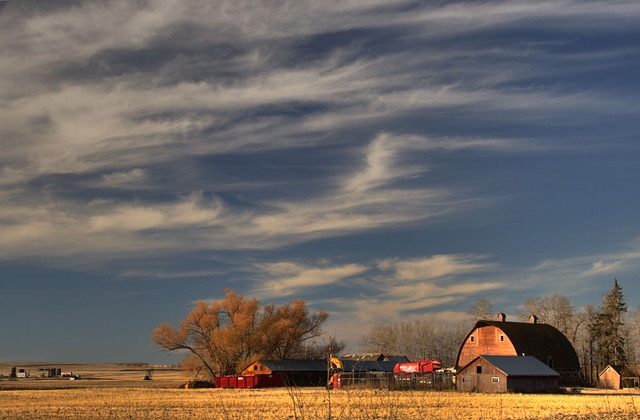Following recent developments in Europe concerning farmers’ protests and amidst Canada’s ongoing agricultural debate, the Agri-Food Analytics Lab at Dalhousie University, in collaboration with Leger, has unveiled fresh research shedding light on the prevailing rural-urban disparity, according to a press release.
This study, based on a survey of over 1,600 respondents conducted in early February 2024, explores the varying perspectives across different generations regarding the stewardship of Canada’s farmlands by farmers, uncovering a notable generational gap in perceptions.
According to the release, the study reveals a stark contrast in confidence levels towards sustainable farming practices among various age groups. Among young Canadians aged 18-34, there is a notably lower level of confidence, with less than half (46%) believing in the capabilities of farmers as custodians of the land. In contrast, a substantial 73% of older respondents aged 55 and above express trust in farmers’ guardianship. Middle-aged participants (35-54 years) hold a more moderate perspective, with 60% indicating their confidence in farmers.
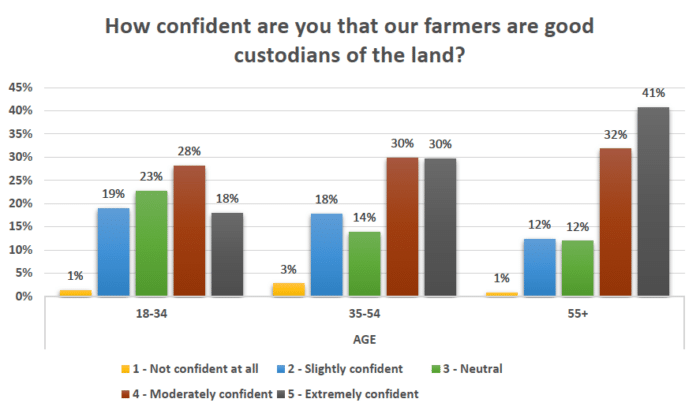
Examining Modern Agriculture Regionally
Throughout Canada’s expansive landscape, the embrace of modern agricultural methods and technologies exhibits regional disparities, although an overarching 54% of Canadians appreciate these advancements. The release states that Manitoba and Saskatchewan stand out, with 62% of residents acknowledging the adoption of modern practices. This regional analysis also underscores a generational consensus, particularly among older demographics, with 65% recognizing the transition towards modern agriculture.
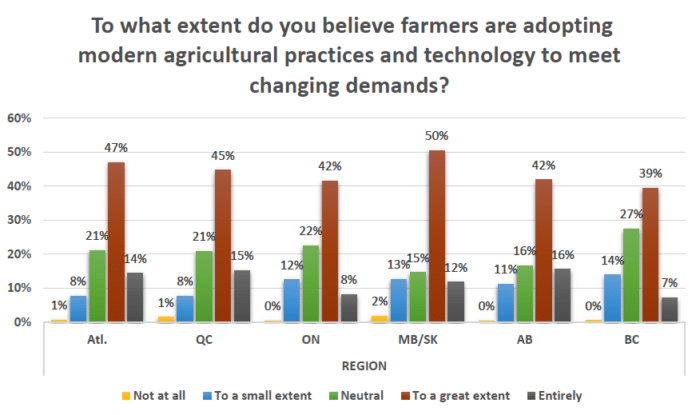
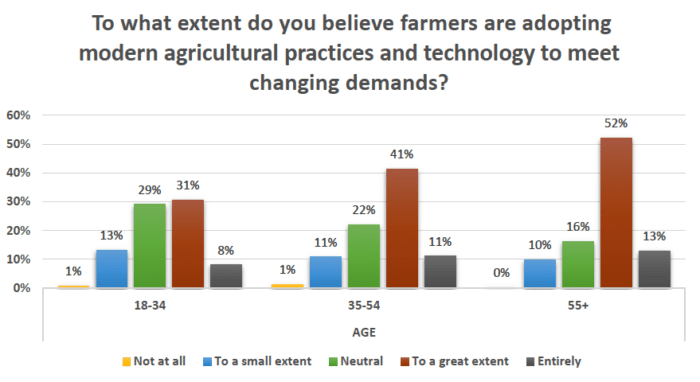
Analyzing the Impact of Urban Centers on Rural Farms
Delving into the urban-rural interplay, the survey investigates the perceived influence of city residents on farming decisions. A modest yet noteworthy portion of rural participants (7%) feel a strong urban influence, contrasting with 32% who see it as moderate. Urban viewpoints echo this perception to some degree, albeit with less prominence, “showcasing the nuanced dynamics between urban and rural perspectives on agriculture,” according to the release.
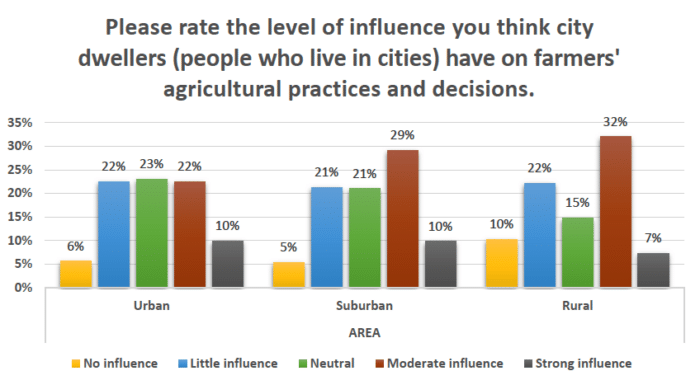
Understanding Farming Challenges
Awareness of the diverse challenges confronting farmers today, from climate change to economic pressures, also varies by age. Older Canadians demonstrate higher levels of awareness, with 30% being very familiar with these issues, in contrast to just 12% among younger respondents. According to the release, “This gap highlights the need for increased education and dialogue across generations to foster a deeper understanding of the agricultural sector’s challenges.”
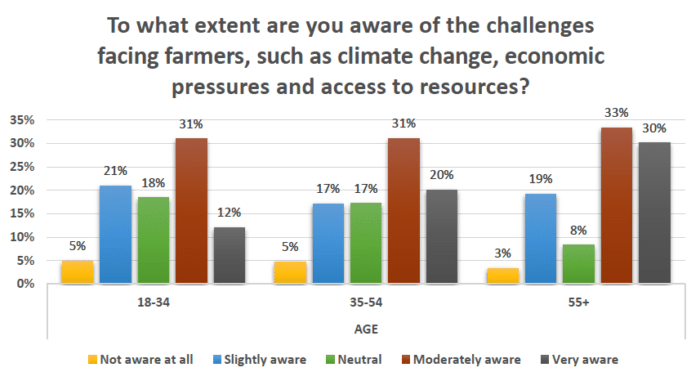
Bridging the Gap in Food Production Understanding
A substantial 64% of participants perceive a considerable gap in comprehension between consumers and farmers concerning the food production process. This perception is particularly prevalent among older Canadians, indicating a crucial opportunity for bridging communication and enhancing knowledge sharing between farmers and the broader community.
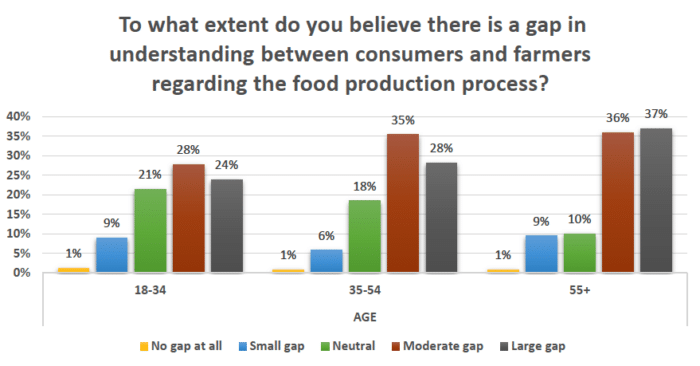
Shedding Light
The release states that “this survey not only sheds light on the diverse viewpoints across generations but also underscores the critical role of dialogue, education, and technology in shaping the future of Canadian agriculture. As we navigate the complexities of sustainable farming and climate mitigation, these insights offer a valuable foundation for fostering collaboration and understanding between farmers and the Canadian public.”
Janet Music, Research Manager of the Agri-Food Analytics Lab at Dalhousie University says these findings are incredibly illuminating. “The generational disparities in confidence levels towards sustainable farming practices underscore the importance of targeted education and outreach efforts, particularly among younger Canadians.”
“It’s evident that bridging the gap in understanding between consumers and farmers is essential for the future of Canadian agriculture,” says Dr. Sylvain Charlebois, Director of the Agri-Food Analytics Lab at Dalhousie University. “Moreover, the regional perspective on modern agricultural practices highlights the need for tailored approaches to address varying needs and perceptions across different parts of the country. Overall, this report emphasizes the significance of fostering dialogue, enhancing awareness, and leveraging technology to ensure a sustainable and prosperous future for Canadian farming.”
For more information and access to the full report, please visit https://www.dal.ca/sites/agri-food.html.

